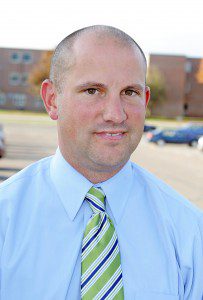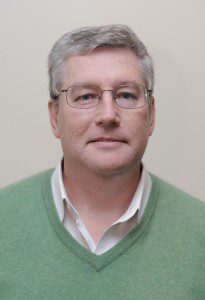WESTFIELD – On June 19, At-large Councilor David Flaherty filed an Open Meeting Law (OML) complaint with the Office of the Attorney General against the City Council and the finance subcommittee regarding the subcommittee meeting held on June 18; the first with department heads for the fiscal year 2020 budget review.
In the complaint, Flaherty said that public participation was not on the agenda, and during the meeting subcommittee members discussed the department operations and various budget concerns with department heads.
Flaherty alleges the violation occurred when City Council members, who were represented by more than a quorum (seven) in the meeting including the three subcommittee members, were allowed to engage in discussion with the department head, subcommittee members, and among themselves.
“In many cases, questions were asked by non-committee members, and in some cases, opinions or adjectives (that implied an opinion) were use(d) in the lead-up to the question or the question itself,” Flaherty wrote in the complaint.
He also stated that accurate detailed minutes of the various discussions were not taken by subcommittee members.
Flaherty wrote that in his opinion, the proceedings violated the Open Meeting Law and went against the advice of the city’s Law Department.
The advice was given by City Solicitor Susan C. Phillips in the form of a memo on June 4 to Brent B. Bean, II, chairman of the finance subcommittee, in response to his questions regarding permissible participation by City Council members attending subcommittee meetings. This topic has been a subject of debate and confusion in the City Council for the past several years.

BRENT B. BEAN II
In the memo, addressed to Bean and copied to City Council President Ralph J. Figy and City Clerk Karen Fanion, Phillips wrote: “Recently, with the new practice of permitting public participation at subcommittee meetings, these meetings are attended by City Councilors who choose to participate in the dialogue. This type of participation, in my opinion, violates the OML when a quorum of the full council is present.”
Phillips went on to describe what, in her opinion, would be the proper participation by a non-subcommittee Council member during a meeting.
“It is my opinion, that if an attending non subcommittee member seeks to ask a question of fact to City staff who are in attendance, that question should be directed to the Chair of the subcommittee whose responsibility shall be to determine the appropriateness of the request and direct the question to the staff person. To my thinking, this limited communication is not a deliberation.”
However, Phillips followed up the previous statement with the following, in bold letters: “Please know that my opinion does not prevent anyone from filing a complaint and the Attorney General or the Superior Court may not agree with my analysis.”
Phillips also clarified her analysis by adding “it is essential that there be no comment or any type of persuasive argument concerning the matter before the subcommittee as that would turn the entire discussion into a prohibited deliberation;” and, “The suggestion of allowing limited questioning through the Chair must be carefully managed by the subcommittee Chairs and any remark which is opinion based should be stopped immediately and stricken from the record. The proper time to express opinions is at a duly noticed City Council meeting.”
Under the section in the OML complaint form which asks the complainant what action they want the public body to take in response, Flaherty stated that the purpose of the complaint was to provide clarity for all involved, and to create adequate procedures to avoid future problems.
He asked that a detailed procedure manual for subcommittees be created, to include a detailed Law Department or Attorney General OML opinion for a list of questions which he attached to the complaint. He also asked for a procedure for reviewing agendas and minutes to ensure compliance with the OML.
One of the requirements of submitting an OML complaint to the Attorney General is to first file the complaint with the public body. The same date (June 19) that Flaherty filed with the City Clerk, he wrote an email to Figy and Bean, attaching the complaint, saying he was “not taking this action to affix blame nor to force overly burdensome workloads, but instead to get clarity on the subcommittee participation questions and related matters such as: agendas, public participation, and minutes.”
Bean, who commented at the City Council meeting on Monday that Flaherty had made the OML complaint against the finance subcommittee, said later that Flaherty was looking for a judgment, not an opinion.
“One of my goals as chair of finance is to have an open and honest dialogue in subcommittee. To do that you need to open the discussion up to other councilors for their input. It is the only way to make sound and thorough decisions.
“I have been inclusive of all councilors who take the time to attend these meetings. All of the City Council’s subcommittee meetings are posted and open to the public.
“I am disappointed that councilor Flaherty, who did not attend has chosen this route. He appears to be more interested in rhetoric then outcome. It is unfortunate when councilors try to prevent that openness and transparency,” Bean said on Tuesday.
City Council President Ralph J. Figy, however, agreed that clarity is needed. “It will be good to get the opinion from a neutral party so we can proceed doing the city’s business in a correct manner. I believe that most of the council’s work should be done on committee,” Figy said.
Fanion said the complaint is being answered by the Law Department and would be filed with the Attorney General’s office. Flaherty said the Attorney General’s Open Meeting Law group is investigating.









